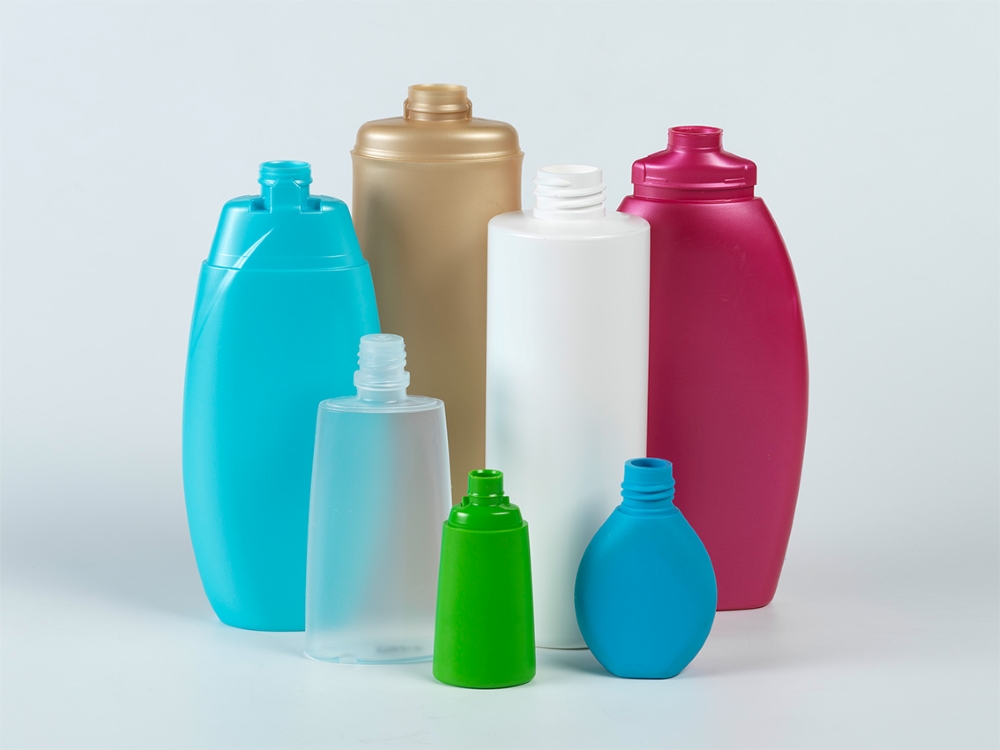Super-cleaning and odor reduction for the most popular plastic packaging in the consumer goods sector: Starlinger’s viscotec and recycling technology divisions have joined forces to offer high-end solutions for the production of food-grade recycled PP, PE, PS and PET. In line with Starlinger’s vision of “Food-Grade without Compromise”, the combination of the proven recoSTAR dynamic post-consumer plastics recycling system with the new viscoZERO melt phase decontamination technology and the PCUplus for post-treatment of the pellets enables super-cleaning and odor reduction not only for PET, but also for PP, HDPE and PS.

“With this new machine set-up, we are presenting a super-cleaning solution for post-consumer packaging made from polyolefins such as PP and PE or polystyrene at this year’s NPE,” says Paul Niedl, Commercial Director at Starlinger recycling technology. “Post-consumer packaging made of PP, PS and HDPE in particular degrades in the recycling process, which means that the recovered material can only be used in applications with lower requirements. With the new technology, the material is upgraded in the recycling process and is therefore suitable for demanding applications such as packaging with direct food contact.”
Re-cycling instead of down-cycling
The newly designed recycling process is used to thoroughly decontaminate post-consumer food packaging made of PP, PE or PS. This produces food-grade, odor-reduced regranulate that can be reused for the production of food contact packaging instead of being used for lower-quality packaging.
The recycling system consists of a recoSTAR dynamic recycling extruder with/without degassing, a continuous melt filter or power backflush filter, the viscoZERO melt phase decontamination reactor, a belt filter or power backflush filter upstream of the underwater or water ring pelletizer, and the optional PCUplus for post-treatment of the pellets by means of air flushing at the end of the process. Depending on the system configuration, recycled granulate is produced in different qualities – from food-safe to highly decontaminated and odor-treated. In combination with the PCUplus, the viscoZERO reactor produces recycled PE, PP and PS that meets the highest standards for packaging with direct food contact.
The viscoZERO melt phase decontamination reactor can also be installed as a turnkey stand-alone solution to decontaminate various highly viscous materials quickly and efficiently. “The viscoZERO reactor opens up new possibilities for plastics recyclers, as it gives them greater flexibility and allows them to process a wide range of input materials into pellets of outstanding quality,” says Gerhard Bräuer, Product Manager viscoZERO at Starlinger viscotec. “You can recycle post-consumer PP, PE, PS as well as PET and produce top-quality recycled pellets that can be used for food contact packaging.” During the decontamination process in the reactor, volatile impurities are effectively removed and the material is cleaned and homogenized. Unwanted odors or substances such as spinning additives are effectively removed. When processing PET, it is also possible to increase the IV value to the desired level.
At the NPE, the recoSTAR dynamic recycling extruder, the PCUplus pellet rinsing unit and the viscoZERO melt phase decontamination reactor will be on display at Starlinger’s stand in the West Hall.
Closing the loop for industrial plastic packaging
As the global market leader in systems and process technology for woven plastic sacks, Starlinger also supplies the entire range of machines for this type of packaging – from tape extrusion systems and circular weaving machines to systems for coating, printing and sack assembly. With its pioneering “Circular Packaging” concept, the company offers the first circular solution for industrial packaging made from PP or PET woven tape such as FIBCs. “Reusing plastics in the same application is the highest form of recycling,” says Harald Neumüller, CSO of Starlinger. “That’s why we develop machines that enable our customers to recycle plastic and not down-cycle it. Our technologies for recycling used big bags made of polypropylene or PET and turning them into new ones are unique. They represent a step towards a circular economy in the plastic packaging industry. We are looking forward to sharing our know-how with interested visitors at the NPE!”
Picture above: Odor-reduced regranulate is produced from HDPE detergent bottles, from which new bottles can be produced again instead of being used for less demanding packaging (downcycling). Photo: Starlinger

